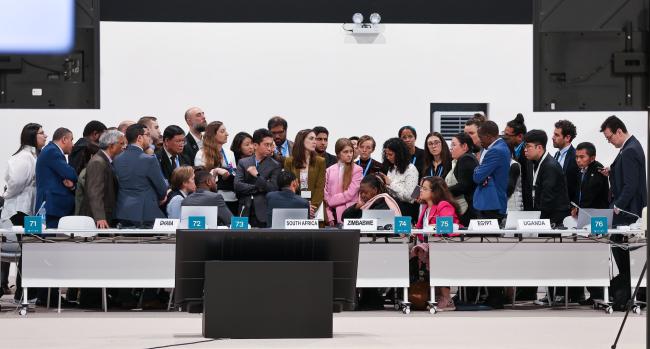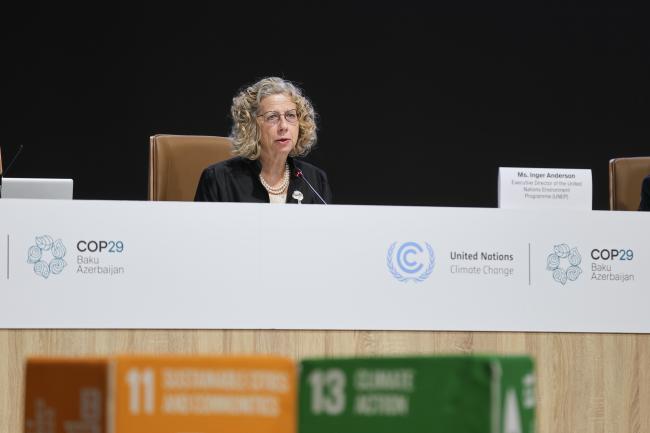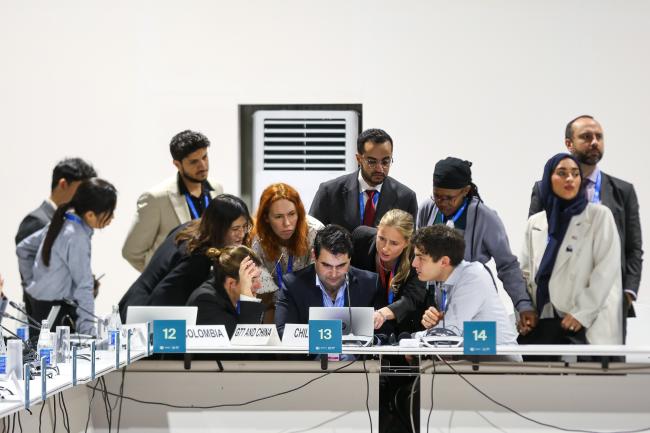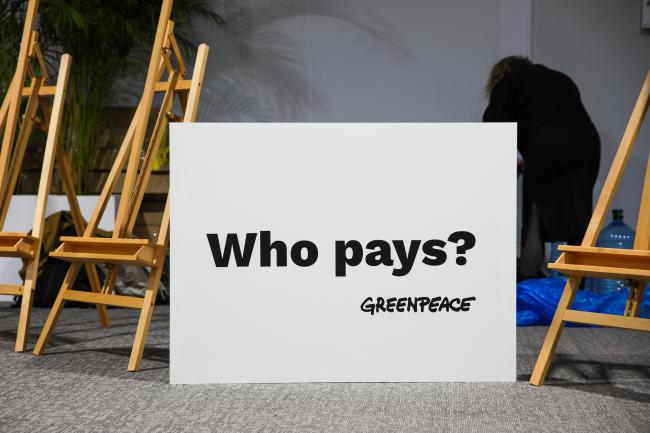The stocktaking plenary in the morning showcased how much work remains to be done. While there seems to be some progress on cooperative approaches for implementing the Paris Agreement (Article 6), there is still a stark divide on the big ticket item that is the definition of a new finance goal.
Want to dig deeper into today's talks? Read the full Earth Negotiations Bulletin daily report.
The ministers in charge of brokering agreement on the new goal noted that some maintain USD 100 billion as a floor and underscored interlinkages with a resolution on the contributor base, and sources and structure of the goal. In other words, a broader set of contributors, a higher number promised. Others apparently tabled expectations for USD 440 billion, USD 600 billion, or USD 900 billion in public finance within an overall mobilization goal of, as developing countries expect, USD 1.3 trillion.
In a joint press conference, the Like-Minded Group of Developing Countries and the African Group considered talks of USD 200-300 billion in public finance “a joke,” with the African Group noting this would not even be enough to respond to the gap in adaptation finance. When questioned about the calls for minimum allocation floors for small island developing states and least developed countries, the African Group noted “the Paris Agreement is clear on who is supposed to receive finance and from whom.”
Throughout the day, negotiators who engaged in continued consultations at the technical level did their best to clean their draft texts, which are now in the hands of the Presidency. New drafts are expected to be released by 7:00 am on Thursday, 21 November, after which parties will convene in a “single setting.”
To receive free coverage of global environmental events delivered to your inbox, subscribe to the ENB Update newsletter.
All ENB photos are free to use with attribution. For the 2024 UN Climate Change Conference Baku, please use: Photo by IISD/ENB | Mike Muzurakis


























































